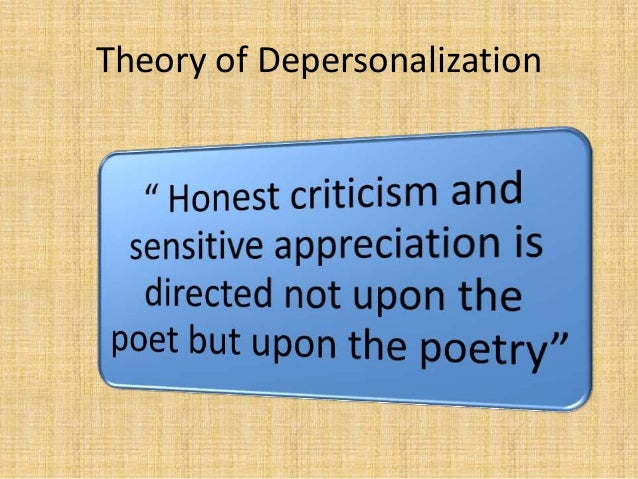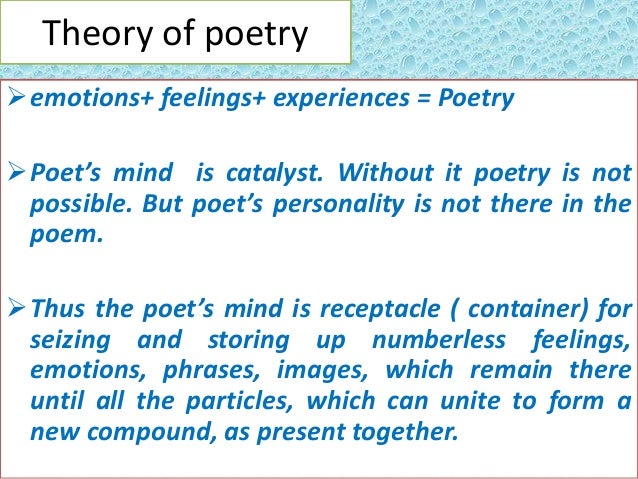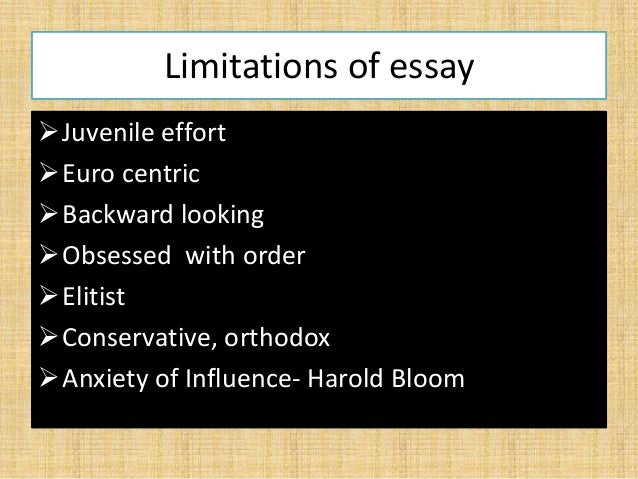v The Birthday Party is a play by Harold Pinter. Genre
of the play is Theatre of Absurd or
Comedy of menace.
v -a perceived threat or danger
v -the act of threatening
v -an annoying and bothersome
person
v -To make threats against (someone);
v To intimidate.to a country with war
v To threaten (an evil to be inflicted)
v -To endanger (someone or something);
v Comedy of menace is a term used to describe plays of
David Campton and Harold Pinter by critic Irving Wardle.
v The Birthday Party is full of a kind of fear, danger
which we cannot explain. It is funny as well as frightening. We feel uneasy all
the time even when we are laughing or smiling with amusement. This dual quality
gives play uniqueness. Play is full of uncertainty and insecurity.

v There are two silences in Pinter's plays. One when no
word is spoken. And the other when perhaps a torrent of language is being
employed. While the play sometimes there is long pause, total silence, not a
single word is spoken. At the same time there are moments in the play, where
there is torrent of dialogue that we do not have even time of thinking or
comprehending what is going on. Our mind goes blank. Example of torrent of
dialogue is Nat and McCann’s questioning to Stanley- that frustrated Stanley
shouts and kicks him.
v Oxford English Dictionary defines “Pinteresque” as “of
or relating to British play wright, Harold Pinter, or his works”. “Pinter’s
plays are typically characterized by implications of threat and strong feeling
produced through colloquial language, apparent triviality, and long pauses”
v The Birthday Party as an Allegory- means having more
than one meaning. It is very much open for various interpretations. We can read
Stanley as an artist in exile. And artist is in danger because of his radical,
free thinking. And threatened by underworld. So he is living fearful like that
somebody will come and caught me. There is reference of him as pianist, and at
the end of the play he is not able to speak and is well dressed and clean shaved
which mean that he has conform to Nat and McCann (Underworld or society).
v Political reading leads us to think Stanley as smaller
Nations and Nat and McCann as bigger nation like U.S. etc.
v Characters like Petey symbolize impotency of society. In
spite of knowing everything, they can’t do anything. Meg forgets everything
which symbolizes large number of people, generally forgets things. Broken
glasses of Stanley symbolize breaking inspiration, vision of artist.
v Although Harold Hobson declared that ‘no one can say what precisely
it is about ‘and albeit Pinter’s assertion that “I can sum up none of my plays,
I can describe none of them …’ the play has a pertinent and poignant
theme for it deals with the subordination and marginalization of women
characters. Pinter’s symbolical and allegorical play The Birthday Party is
concerned with how the women characters like Meg and Lulu are relegated to
insignificance, how they are treated as inferior to male characters like
Stanley, Goldberg, McCann and even Petey, how they are deprived by men-folk
socially, economically and culturally. Thus a feminist reading of the play is
obvious.
v Apart from a very good writer Pinter was very good
screen play writer also. He himself has written screenplay of movie version of
The Birthday Party. If we compare film and movie, then movie gives far better
experience what Pinter wanted to say. In stage performance all the things are
not possible, which is in movie. Film communicates better dramatic experience.
For example apart from outdoor shooting, many scenes are suggestive. We see
through the mirror of car, which signifies many things- that where car has been
rather than where it is going.
v In play we cannot see the kitchen of Meg, but in film
camera focuses on untidiness of kitchen.
The camera records and magnifies the trivia. Magnification technique is
used very well in the movie. For example tearing of newspaper by McCann,
Goldberg’s threat to Stanley. And Stanley’s weakness in the face of the threats
against him is also emphasized through camera angel. In the movie, deliberately
to create menacing effect background music is not give. It is not interesting
to watch. It becomes unbearable. But this itself is the texture of the play
& movie. They wanted to transfer the experience, which they have done
through far better objects in the movie.
v There are many scenes in which knocking of door happen
and it creates menacing effect. For example when Stanley wakes up and washing
his face there was knocking of door,
v When Nat &McCann were threatening to Stanley
suddenly there is loud knock on the door. It frights characters as well as
audience also that what will happen? Who will be there behind door? Etc.
v Silence and pause is special characteristics of
Pinter’s plays. It is used in such a way that it creates dangerous, frightening
effect.
v Things like mirror, toy drum, newspaper, breakfast,
chairs etc. symbolically significant in the movie. In the beginning of the
movie, camera focuses on mirror of car, and through this we see what is passing
by. In other scenes it can be interpreted as it shows self-reflection to
character who they are.
v Newspaper is widely used. Petey is reading in the
beginning. We can read that behind newspaper he is hiding his impotency.
Untidy, tasteless breakfast Petey takes and appreciates also, which may be
interpreted as husband wife’s dull, loveless, tasteless relations.
v Interrogation scene is very interesting, in which
there is not even space for taking breath. It is like torrent of dialogue. Nat
& McCann asks plenty of questions, and frightened Stanley starts sweating,
starts shouting and kicks him.
v Birthday Party scene is set in very small room, where
is no space –occupy by too many objects, symbolically signifies characters
narrowness and unable to move kind of situation. Interesting thing is that,
they are celebrating birthday of Stanley, But Stanley denies that it is not his
birthday. Except Stanley all enjoys- Nat & Lulu, Meg & McCann.it also
mean both the ladies are taken away from him. His glasses are broken during this
scene- means breaking artist’s vision and inspiration. So it is very important.
v And in the 3rd act, Nat and McCann takes
Stanley away to a man called Monty. Petey tries to resist but can’t stop them
from taking Stanley. This suggests society’s impotency to protect artist.
v In the movie two scenes are omitted, which is in the
play- the reason may be to make movie compact and precise. Or maybe they wanted
to focus on Stanley- an artist that how they are used and frightened by
bureaucrats or people from underworld.
v Yes, there are many incidents when we feel effect of
danger. When two strangers come, who they are? Why they came? What they will do
with Stanley? Etc. will create effect of danger- even Stanley says to Meg – you
don’t know with whom you are talking. This indicates his fishy past.
v McCann tears newspaper which Petey was reading
earlier. In last act, in spite of Petey’s resistance they take Stanley away and
also threat him. Which shows Petey’s insignificance, impotency against them.
v While playing blind man’s buff, camera is on the head
of Stanley which creates image like cage, trap which means that he is held up
in such a situation from which it is not possible for him to come out. Now
Stanley has no way to go out, he has to succumb himself to them.
v Film is brilliant, no doubt than movie. It with
fantastic use of camera transfers the experience of fear, menace to the
audience. What Pinter cannot do in the play performance, because of its
limitations, he does that in the movie. Then even if we don’t know the Pinter’s
biography or if we watch movie without prior reading then we will understand
nothing. It is boring, monotonous to watch, and even without background music.
v Director has beautifully made the movie. They are able
to tell what they wanted to. Setting, character, camera work, dialogue
everything is perfect.
 she was used as mere pawns or puppet. She lost her caring father and also rejected by his lover prince Hamlet. Hamlet tells her to go to Nunnery. Now only just try to think her condition!!, tThere is no one present who gave her love. She is all alone!!!!!.Psychology also says that every one needs love in this sort of condition and when one fails to get that he/she becomes mad. Same thing happen with her. I have great sympathy for her. And when Laertes comes back and saw that his dear sister is mad at that time brother’s expression was also tragic.
she was used as mere pawns or puppet. She lost her caring father and also rejected by his lover prince Hamlet. Hamlet tells her to go to Nunnery. Now only just try to think her condition!!, tThere is no one present who gave her love. She is all alone!!!!!.Psychology also says that every one needs love in this sort of condition and when one fails to get that he/she becomes mad. Same thing happen with her. I have great sympathy for her. And when Laertes comes back and saw that his dear sister is mad at that time brother’s expression was also tragic.



